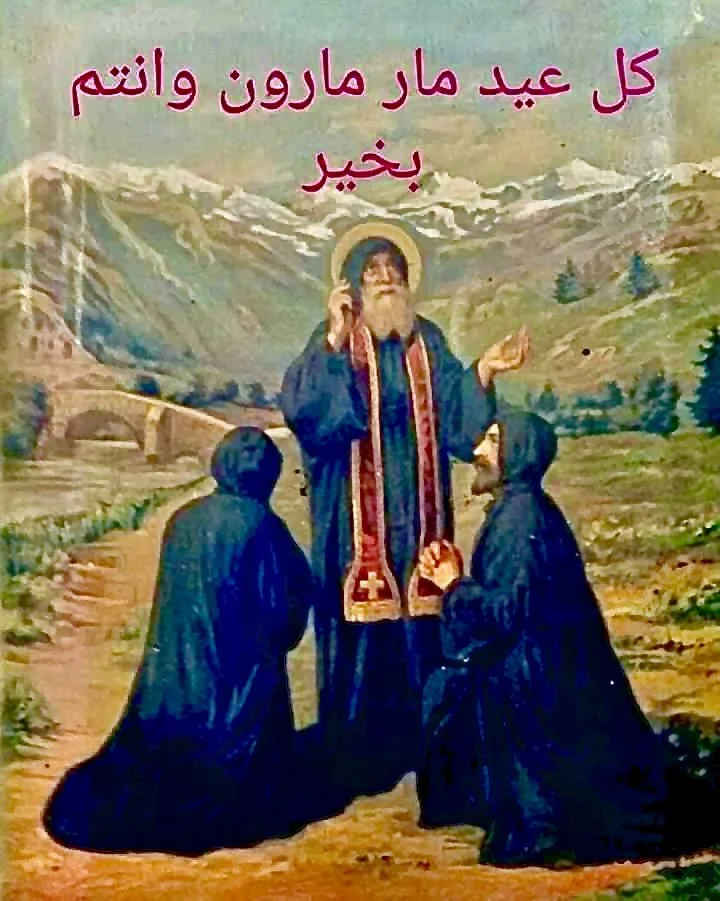St. Maroun’s feast day, February 9th
A reflection by Fr. Kamal, whose spiritual tradition is as a Maronite Christian.
Maronite Christians take their name from St. Maroun. He was born in 350 A.D. in Syria and ordained in 405. He was a hermit who lived generally in the open with no shelter. When he found pagan temples built in honor of false divinities, he turned them into Christian devotional shrines, usually honoring the Holy Mother.
St. Maroun would spend most of his nights standing in prayer and had the gift of healing both physical ills and vices. He trained monks in Syria. He was a friend of and greatly revered by St. John Chrysostom, who from his exile asked St. Maroun to pray for him.
St. Maroun died early in the 5th century of natural causes. He was buried near what is today the city of Homs in Syria. A monastery grew up around his tomb. Maronites are now spread all over the world. One third live in Lebanon. There are also communities (mostly French speaking) in South American countries like Brazil and Argentina, some in Europe, and small minorities in Syria, Jordan and the Holy Land.
Today, we remember this hermit with prayer and an evaluation of what we are doing with the great heritage of faith and witness as Maroun's Church and people.
We need to return to his deep spirituality based upon the following:
Scriptures
He fed his mind and heart with the knowledge and love of the scriptures.
Knowledge
He shared his knowledge, spiritual wisdom and daily bread with other monks and people of the region who would come to consult him and follow his way of living.
Prayer
St. Maroun considered prayer to be an echo of God's voice in our human hearts. He responded with gratitude, humility and joyful peace like Mary did when she was visited by Archangel Gabriel at the Annunciation. His soul was humble and accepted God‘s will.
Trust and Hope
To St. Maroun, there is a difference between trust and hope. When we pray and feel God doesn’t respond, trust God and do not impose nor dictate what we would like to have. Leave it to God with hope that He will respond according to His will. Pray with deep faith and hope that God knows what’s better for us.
Fasting
He considered fasting to be a grace of mastering one's own desires and needs. When we abstain from consuming a food or other item we like, it becomes a charity consecrated to God. We share with Jesus in the plight of the needy ones. It is a way of living our faith through charity.
His famous motto was, “Restore holiness to what has been defiled, and do not profane what has been sanctified!” May St. Maroun’s model of life and prayers inflame our hearts and protect the church everywhere!

